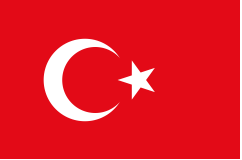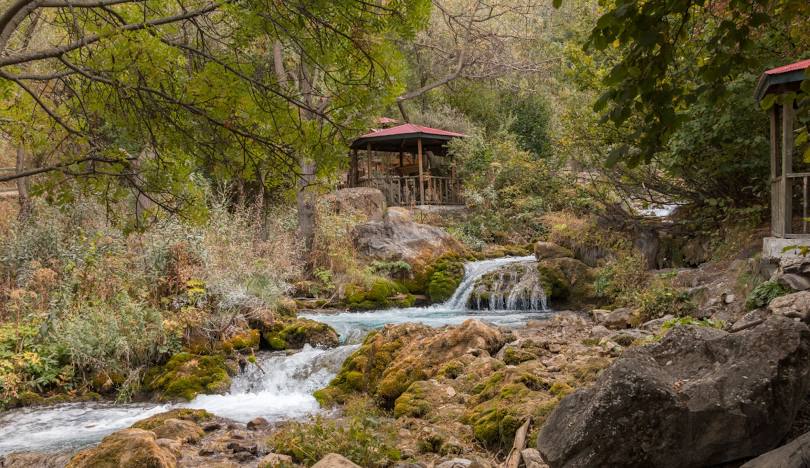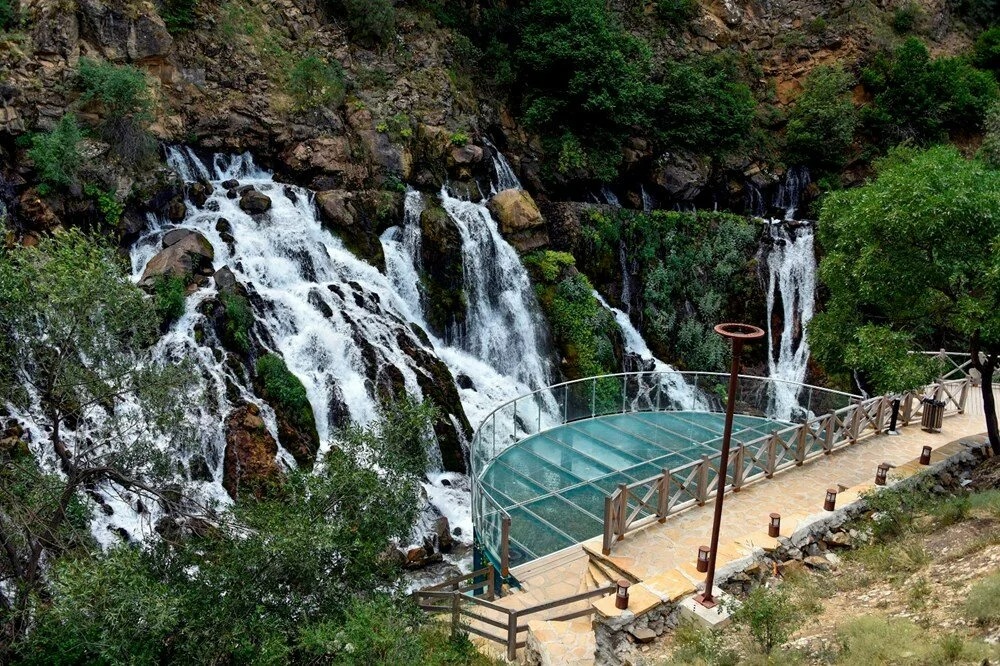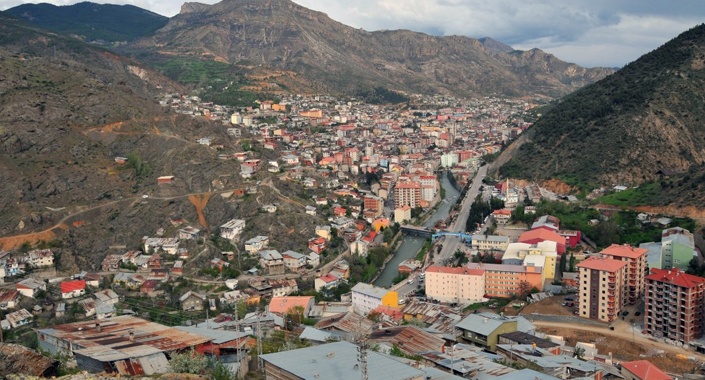Şiran
Şiran is a district of Gümüşhane province. Although surface findings dating back to the Copper Age and Early Bronze Age have been found within the borders of Şiran, the lack of detailed excavations has limited access to information about whether the history of settlement in the district extends to older periods. During the surface research carried out in Araköy/Könger Höyük in the 2000s, finds belonging to the Karaz culture (Early Transcaucasian Culture) were found on the borders of Şiran, and it was seen that the culture in question extended to this region. The name Şiran is essentially the name of the region covered by the district. In Byzantine sources, this region has been called Khêriana and (plural genitive) Khêrianôn since the 9th century. It was recorded as "Şiryan" in the 16th and 17th century documents. The name Şiryan was adapted to Turkish as Şiran over time. In the local dialect, Şiran is pronounced as Şeyran. The settlement center was mentioned as "Karaca" in the 19th century. Shiran region; Towards the end of the long Byzantine rule, it was the scene of the Byzantine-Sassanid struggle, and as a result of the Arab raids that eliminated the Sassanids, it was exposed to the Byzantine-Arab struggle and the attacks of Georgian and Armenian lords who wanted to benefit from the chaotic situation in the region. The region, which witnessed Turkish raids after the Battle of Manzikert in 1071, came under the rule of the Mengüçlü Principality, founded by Mengücek Gazi. The region, which came under the rule of the Anatolian Seljuks in 1228, also came under Mongol-Ilkhanid rule after the Battle of Kösedağ. The region, which later came under the domination of the Eretna Principality, Erzincan Principality, Karakoyunlular and Akkoyunlular, was definitively placed under Akkoyunlu domination in 1457, following the fierce Karakoyunlu-Akkoyunlu struggle. However, the region soon became the scene of the Akkoyunlu-Ottoman struggle, and following the Battle of Otlukbeli in 1473, it definitively joined the Ottoman rule.


















Leave Your Comments